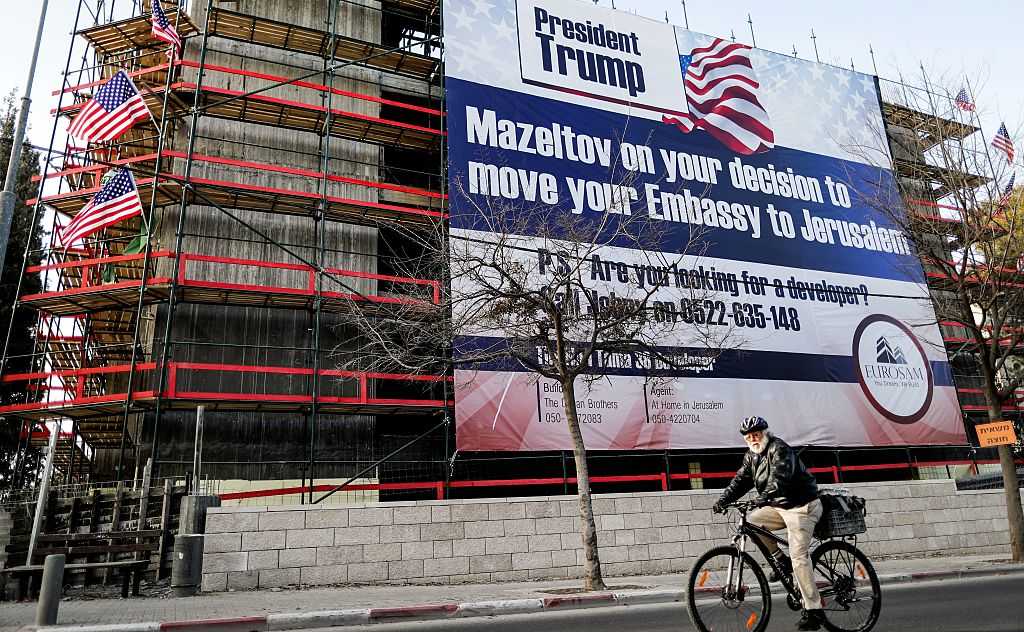One of the most intriguing topics to gain renewed attention in recent days centers on the U.S. embassy in Tel Aviv, Israel, and a potential decision by the Trump administration to relocate that facility to Jerusalem.
It’s no secret that President Donald Trump has openly favored such a move, though he’s certainly not the only candidate to run for president to utter such proposals. In the past, other winning candidates have made — and then abandoned — pledges to move the embassy, but, as Politico reported, Trump could end up breaking that precedent.
And if he does go through with the embassy move from Tel Aviv to Jerusalem, it will most certainly be a big deal. Here’s why: While Israel considers Jerusalem to be its capital, the Palestinians also see the eastern part of the city as their future capital. As NPR explained back in November, Israel has called the entirety of Jerusalem its “eternal” center.
Clearly, there’s a bit of a stalemate. So, for years, the U.S. has stayed out of the battle, essentially allowing the two parties to hash it out.
While Congress voted in the 1990s in favor of the embassy move from Tel Aviv to Jerusalem, Clinton, Bush and Obama — acting on advice from the State Department — all signed waivers to delay the decision, according to NPR.
Thus, considering the complex history and the ceaseless friction in the Middle East, the move would be pretty big.
Now, Politico did note that Trump could balance the potential fallout of the move by recognizing Palestine as an official state, though that’s just speculation at this point, as there’s no indication this this would definitively happen. The broader issue, of course, isn’t only the safety of U.S. embassies and staffers if the move unfolds, but also whether such a decision would hamper peace efforts.
As Deseret News reported last year, the 2016 Republican Party Platform called Jerusalem the “eternal and indivisible capital of the Jewish state,” and declined to call, as it did in its 2012 language, for two “democratic states.”
Obama as well as countries like Jordan and Egypt — which both have peace treaties with Israel and are the only two Arab countries to hold such arrangements — have spoken out against the move. On Sunday, White House press secretary Sean Spicer said discussions on the matter are at “the very beginning stages.”
It’s unclear whether Trump will fulfill his campaign pledge — or whether he’ll follow other U.S. presidents in rethinking the measure.
(H/T: Politico)
—
Other Must-Read Stories:
– Is Trump’s Faith Real? Paula White Details Decades of Conversations with America’s New President
– The Encouraging Statistic About Americans’ Bible Reading That Might Totally Surprise You
– There’s a Very Purposeful Reason Why This New TV Show is Airing During the ‘Graveyard Slot’
– Singer Ciara’s Powerful Message About Abstinence: Don’t ‘Feel Like You Have to Give Your Body Away’
– Ex-Planned Parenthood Staffer Reveals the Moment That Left Her Totally ‘Disgusted’



